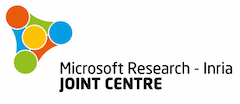Site menu:

Optimization@NIPS
We welcome you to participate in the 7th NIPS Workshop on Optimization for Machine Learning, to be held at:
Montreal, Quebec, Canada, Dec 12th, 2014
Room 513e,f on Level 5
Call for Participation
We invite participation in the 7th International Workshop on "Optimization for Machine Learning", to be held as a part of the NIPS 2014 conference.
Important Dates
- Deadline for submission of papers: 20th October, 2014 (extended)
- Notification of acceptance: 28th October, 2014
Overview
Optimization lies at the heart of many machine learning algorithms and enjoys great interest in our community. Indeed, this intimate relation of optimization with ML is the key motivation for the OPT series of workshops. We aim to foster discussion, discovery, and dissemination of the state-of-the-art in optimization relevant to ML.
This year, the workshop's special topic will be the challenges in non-convex optimization, with contributions spanning both the challenges (hardness results) and the opportunities (modeling flexibility) of non-convex optimization. Irrespective of the special topic, contributions on convex optimization are still encouraged.
We invite participation in the 7th International Workshop on "Optimization for Machine Learning", to be held as a part of the NIPS 2014 conference. This year we invite two types of submissions to the workshop:
- (i) contributed talks and/or posters
- (ii) open problems
For the latter, we request the authors to prepare a few slides that clearly present, motivate, and explain an important open problem --- the main aim here is to foster active discussion. Our call for open problems is modeled after a similar session that takes place at COLT. The topics of interest for the open problem session are the same as those for regular submissions; please see below for details.
In addition to open problems, we invite high quality submissions for presentation as talks or poster presentations during the workshop. We are especially interested in participants who can contribute theory / algorithms, applications, or implementations with a machine learning focus. The main topics are, including, but not limited to:
- Nonconvex Optimization
- Theoretical investigations, global optimality
- Training of deep architectures and large hidden variable models
- Nonconvex quadratic programming, including binary QPs
- Convex Concave Decompositions, D.C. Programming
- EM, majorization-minimization and alternating optimization
- Approximation Algorithms
- Nonsmooth optimization
- Stochastic, Parallel and Online Optimization:
- Large-scale learning, massive data sets
- Distributed algorithms
- Distributed optimization algorithms, and parallel architectures
- Optimization using GPUs, Streaming algorithms
- Decomposition for large-scale, message-passing, and online optimization
- Stochastic approximations
- Algorithms and Techniques (application oriented)
- Global and Lipschitz optimization
- Algorithms for nonsmooth optimization
- Linear and higher-order relaxations
- Polyhedral combinatorics applications to ML problems
- Optimization with Sparsity constraints
- Combinatorial and greedy methods for L0 norm optimization
- L1, Lasso, Group Lasso, sparse PCA, sparse Gaussians
- Rank minimization methods
- Feature and subspace selection
- Nonconvex sparse problems
- Combinatorial Optimization
- Optimization in Graphical Models
- Structure learning
- MAP estimation in continuous and discrete random fields
- Clustering and graph-partitioning
- Semi-supervised and multiple-instance learning
- Other discrete optimization models and algorithms
- Advanced optimization techniques
- Core set based approximation schemes
- Hashing based optimization
- Optimization in statistics, statistical/computational tradeoffs
- Optimization on manifolds, metric spaces
- Problems on cones
- Polynomials, sums-of-squares, moment problems
- Numerical optimization
- Optimization software
- Crucial implementation details (architecture, language, etc.)
Submission Instructions:
- Submission website: easychair
- Page limit: 4 pages (without references)
- Please use the NIPS 2014 submission format
- Please make submission double blind
- If you are doing a dual submission, please contact us first
Please note that at least one author of each accepted paper must be available to present the paper at the workshop.
Looking forward to another great OPT workshop!
Organizing Committee:
- Suvrit Sra (Max Planck Institute, Tuebingen)
- Alekh Agarwal (MSR New York)
- Miro Dudik (MSR New York)
- Zaid Harchaoui (INRIA, Grenoble)
- Martin Jaggi (ETH Zurich)
- Aaditya Ramdas (Carnegie Mellon University)
with senior advisory support from Arkadi Nemirovskii and Stephen J. Wright.
